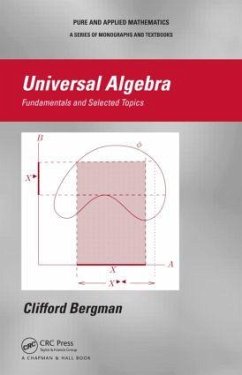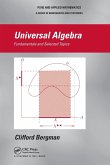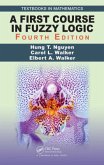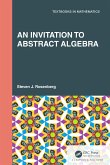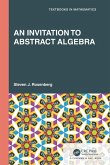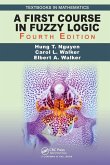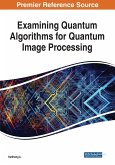Starting with the most basic notions, Universal Algebra: Fundamentals and Selected Topics introduces all the key elements needed to read and understand current research in this field. Based on the author's two-semester course, the text prepares students for research work by providing a solid grounding in the fundamental constructions and concepts of universal algebra and by introducing a variety of recent research topics. The first part of the book focuses on core components, including subalgebras, congruences, lattices, direct and subdirect products, isomorphism theorems, a clone of operations, terms, free algebras, Birkhoff's theorem, and standard Maltsev conditions. The second part covers topics that demonstrate the power and breadth of the subject. The author discusses the consequences of Jónsson's lemma, finitely and nonfinitely based algebras, definable principal congruences, and the work of Foster and Pixley on primal and quasiprimal algebras. He also includes a proof of Murski¿'s theorem on primal algebras and presents McKenzie's characterization of directly representable varieties, which clearly shows the power of the universal algebraic toolbox. The last chapter covers the rudiments of tame congruence theory. Throughout the text, a series of examples illustrates concepts as they are introduced and helps students understand how universal algebra sheds light on topics they have already studied, such as Abelian groups and commutative rings. Suitable for newcomers to the field, the book also includes carefully selected exercises that reinforce the concepts and push students to a deeper understanding of the theorems and techniques.
... as far as I am concerned, the book under review, by Clifford Bergman, is most welcome: we need more of this sort of thing, both for potential universal algebraists and for people like me: fellow travelers to some degree, or mathematicians who both use and thoroughly adore algebra and its structural qualities, and find themselves growing more appreciative of this architectural elegance as they evolve in their work and studies. ... it is clearly written and pleasant to read ... the author provides motivation as well as examples and exercises galore. At first glance it looks to me like the exercises are well-structured and should do the job of bringing the student or reader along at a decent pace from ignorance to both an appreciation for the subject and some facility with it. It's definitely an area worth pursuing for a graduate student with the right disposition.
-Michael Berg, MAA Reviews, December 2011
... excellently written and is highly recommended to all who are interested in universal algebra.
-Mathematical Reviews
-Michael Berg, MAA Reviews, December 2011
... excellently written and is highly recommended to all who are interested in universal algebra.
-Mathematical Reviews

